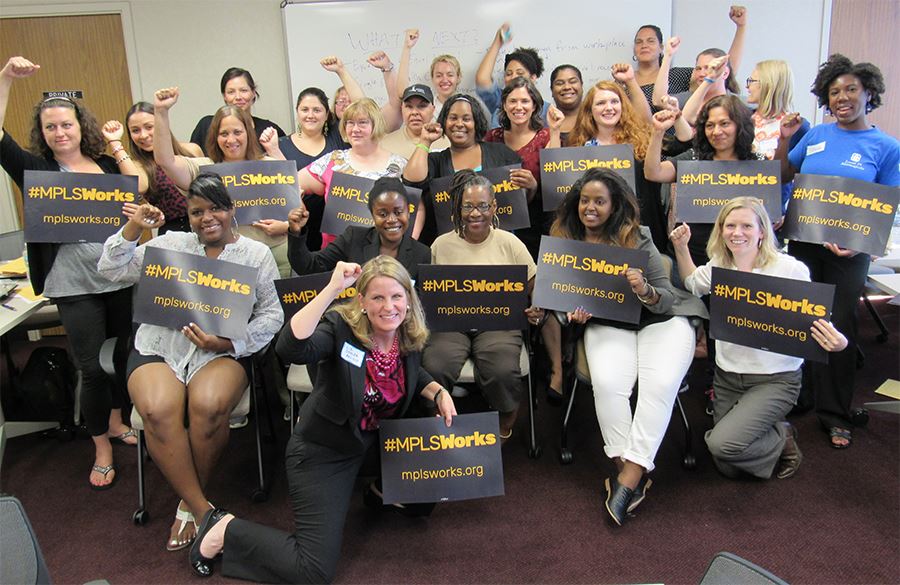

Share
Ongoing campaigns to raise wages and improve working conditions in the Twin Cities are drawing national attention, including a visit this week by AFL-CIO Secretary-Treasurer Liz Shuler.
Efforts such as Minneapolis Works! can provide a model for organizing around the country, Shuler said in an interview with Workday Minnesota.
“The boss wants unbridled authority to take advantage of workers,” Shuler said. “The only outlet is to fight back through collective action.”
The Twin Cities are among 13 targeted communities in the AFL-CIO’s “Road Map for Raising Wages” campaign. While calling for a variety of pro-worker measures – from fair trade to strong pensions – the cornerstones of the Road Map are paid leave, fair scheduling and enforcement of labor standards, Shuler said.
Minneapolis Works! is focused on getting the City Council to enact public policies on those issues. Members of the coalition, which includes a number of labor unions, say too many workers don’t have access to paid sick leave to care for themselves or their families. Too many workers face unpredictable, last-minute work schedules that make it difficult to plan. Too many workers are not paid for all the hours they work.
Shuler said these are national problems that must be addressed by a broad campaign that involves not only labor, but also allies in the community.
Many of the most successful efforts in Minnesota, such as achieving a $10 minimum wage at Minneapolis-St. Paul International Airport, have been led by worker centers and activist groups such as 15Now.
Other victories, such as legislative passage of a statewide minimum wage increase and the Women’s Economic Security Act, were led by coalitions involving labor, faith and community organizations.
The labor movement has traditionally fought for issues that benefit everyone, not just union members, and that approach is more important than ever, Shuler said, with collective bargaining under attack by lawmakers and courts. Next year, the U.S. Supreme Court will rule in a case, Friedrichs v. California Teachers Association, that could seriously weaken the ability of unions to represent workers.
Unions are “looking in the mirror” and examining how they can prove their value to their own members and to other workers, Shuler said. “We need to make sure our finger is on the pulse of what people care about.”
Increasingly, people care about issues like fair scheduling, which affects workers in a variety of industries.
The goal of the AFL-CIO’s Road Map campaign is to win improvements on fair scheduling and other issues – and “use these campaigns as a yardstick for people who are running for public office,” Shuler said. Elected officials at all levels need to be held accountable, she said.
Shuler’s visit included meetings with activists at the St. Paul Regional Labor Federation, a tour of the construction site for the union-built Minnesota Vikings football stadium, a rally with Bethesda Hospital security officers who are seeking representation by AFSCME and a meeting with women workers at the Minneapolis Regional Labor Federation.

